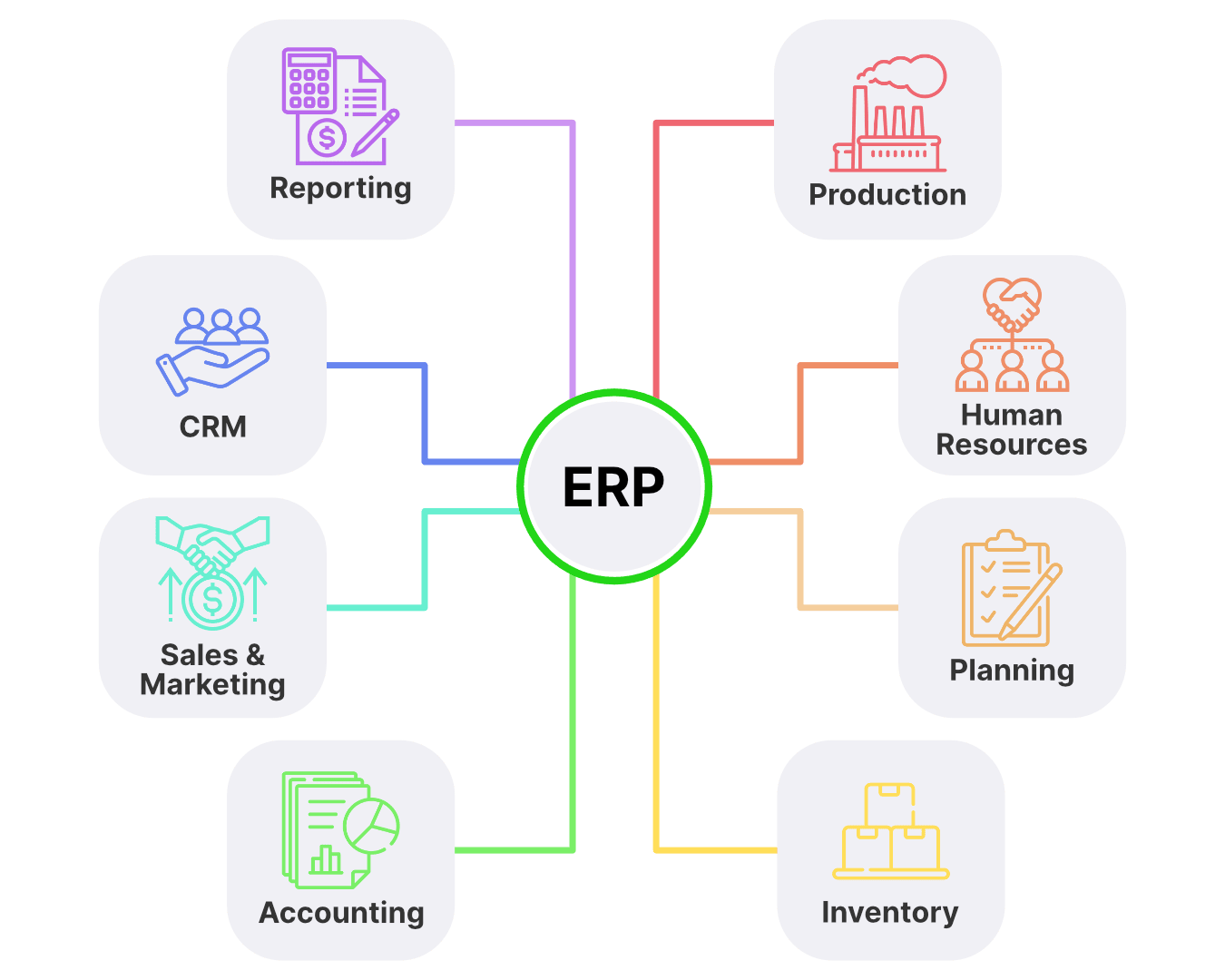Whether you work for a small business with just a handful of employees or a behemoth global titan of industry, you will face unique and complex challenges every day. This is why there is a huge market for solution providers that can make business management easier in practically every way.
Although there are countless tools out there, from accounting platforms to email marketing providers, few take an all-encompassing approach to supporting business processes from one centralized location.
This is where ERP comes in.
In this article, we explore what ERP is, how it works and how it is applied to supporting business growth.
What Does ERP Stand For?
Before we dive into the finer details of what ERP is and how it can be applied to business, let’s start by highlighting something very important:
“What does ERP actually stand for?”
The answer:
Enterprise Resource Planning

What is it?
Now you know what ERP stands for, it isn’t difficult to understand what it is all about - planning and managing resources within an enterprise.
But how does this work in practicality?
When applied in business, ERP is typically a piece of software which is used across business functions such as project management, risk management, procurement, supply chain management, accounting and compliance.
In some cases, ERP can also be used to manage elements of other key business processes such as sales and marketing.
Ultimately, the more business functions that input and extract data and information from an ERP, the bigger the benefits.
How Does ERP Software Work?
ERP software is usually either hosted in-house or in the cloud.
By using one centralised source of data, it ensures that all business functions that are managed from within the ERP software work seamlessly together, helping to align work and limit the potential for duplication. ERP is also essential in ensuring that all data that is managed by the system remains of the highest quality and doesn't get mismatched between business areas and databases.
Not only does centralised ERP software reduce the potential for error in business processes, but it also offers a platform which can be used as a ‘single source of truth’. This allows management to get an accurate real-time insight into how the business is performing and make business decisions based on this view.
ERP vs Financials
The term ‘financials’ and ERP are commonly mentioned in the same context, often misleading people into thinking they are one and the same thing. This is likely due to the fact that finances are often the main driving force behind a company's ERP.
Financials typically refer to specific modules within an ERP such as financial accounting, payables and receivables, grants, expenses management, project management and asset management. However, not all modules within an ERP are financially driven for example human resources, manufacturing, inventory and maintenance are modules that aren’t centralised around financial data - although most do benefit from financial integration in some way.
Summary
It is clear that ERP is a powerful tool which can be used to help streamline businesses and facilitate growth. By adopting ERP software, management can get better visibility over business processes and make business decisions based on a clearer idea of the real state of the business.